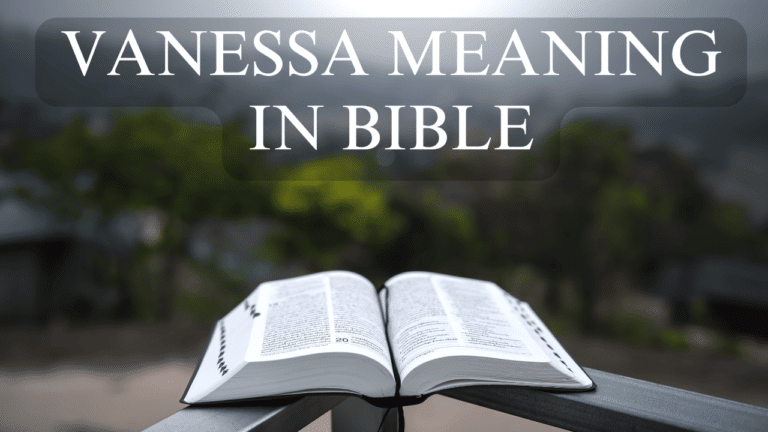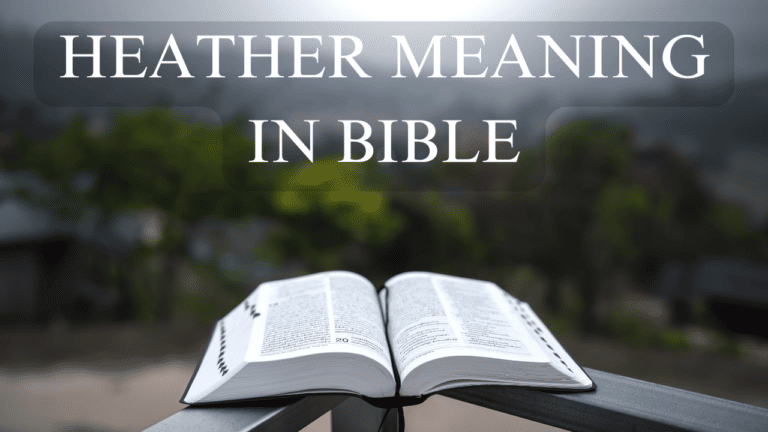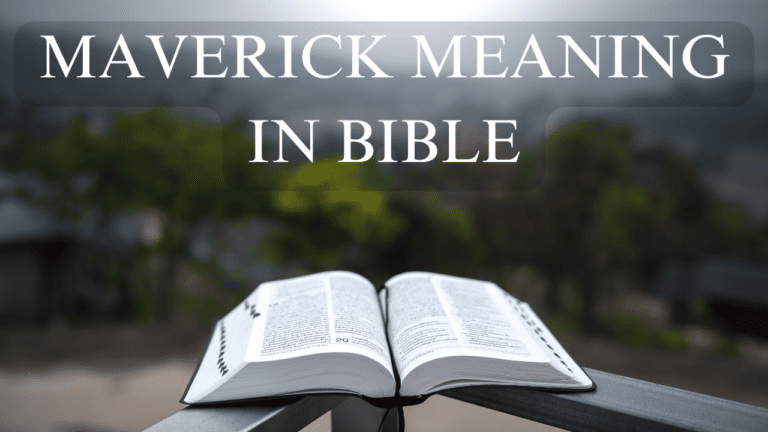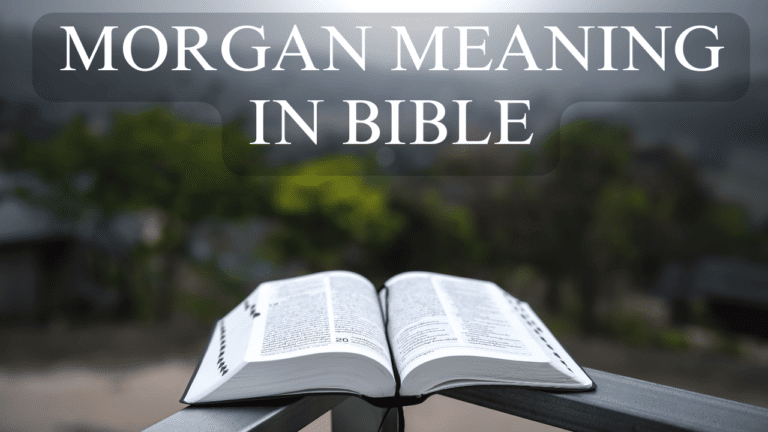Exploring ‘Extol’ in the Bible: What Does It Really Mean?
In the Bible, “extol” means to praise or lift with great enthusiasm and admiration. It signifies a profound and passionate act of worship, celebrating God’s greatness and virtues.
The Bible, a text revered by millions, is filled with words that carry deep spiritual significance. Among these, the word “extol” stands out as a powerful expression of praise and worship. Though not commonly used in everyday language, understanding what it means to “extol” God provides profound insights into how believers are called to honor the Divine. In this blog post, we will delve into the meaning of “extol” in the Bible, explore its usage in various scriptures, and discuss why this act of worship is so significant.
What Does “Extol” Mean?
To “extol” means to praise enthusiastically and to lift someone or something with high regard. The word is derived from the Latin “extoller,” which means “to lift” or “to exalt.” In a biblical context, extolling often refers to praising God with deep reverence and enthusiasm, acknowledging His supreme greatness and glory.
The Importance of Extolling in Worship
Worship in the Bible is more than singing songs or reciting prayers; it’s about recognizing and declaring God’s worthiness. When we extol God, we are not merely giving Him praise; we are lifting Him up above all else, acknowledging His ultimate sovereignty and majesty. This act of extolling is a vital part of the believer’s relationship with God, reflecting a heart full of awe, gratitude, and devotion.
Charles Spurgeon
Theologian
To extol God is to elevate Him above all, to proclaim His greatness with every fiber of our being.
How “Extol” Is Used in the Bible
The word “extol” appears in several key passages throughout the Bible, particularly in the Psalms, which are often songs and poems of praise. Let’s examine some scriptures where “extol” is used and the context in which it is applied.
Psalm 145:1-3
- “I will extol you, my God and King, and bless your name forever and ever. Every day I will bless you and praise your name forever and ever. Great is the Lord, and greatly to be praised, and his greatness is unsearchable.”
- In this passage, the psalmist declares a commitment to extol God daily, emphasizing God’s greatness that surpasses all understanding. This reflects a continuous act of worship, where God’s name is lifted high without end.
Psalm 30:1
- “I will extol you, O Lord, for you have drawn me up and have not let my foes rejoice over me.”
- Here, extolling God is directly linked to gratitude for deliverance from enemies. The psalmist lifts God’s name in response to His saving grace, acknowledging that God has brought victory and protection.
Isaiah 25:1
- “O Lord, you are my God; I will exalt you; I will praise your name, for you have done wonderful things, plans formed of old, faithful, and sure.”
- In this verse, “extol” is synonymous with “exalt,” showing that to extol God is to recognize and proclaim His faithfulness and the wondrous things He has done.
Why “Extol” Is More Than Just Praise
While praise can be general, extolling is a more specific and intense form. It involves a deliberate lifting up of God’s name, placing Him above all else. This can be seen in several ways:
- Elevating God Above Circumstances: To extol God is to acknowledge His greatness despite our circumstances. Whether in times of joy or trial, extolling God means recognizing His sovereignty and goodness, no matter what we face.
- A Declaration of God’s Attributes: When we extol God, we are often declaring specific attributes of His character—His love, mercy, power, and faithfulness. This is more than just saying “thank you”; it’s proclaiming who God is.
A.W. Tozer
Theologian
In extolling, we align our hearts with heaven, lifting God’s name above every other and recognizing His sovereign rule.
- A Form of Spiritual Warfare: In the Bible, extolling God is also seen as an act of spiritual warfare. By lifting up God’s name, we affirm His authority over all things, including our enemies and challenges.
The Role of Extolling in Christian Life
Extolling God is not just a biblical concept; it’s a practice that has significant implications for the Christian life. Here are some ways in which extolling God plays a vital role in a believer’s spiritual journey:
Deepens Worship
- When we extol God, we move beyond surface-level praise to a deeper, more intimate form of worship. This deepened worship helps us connect with God more personally, fostering a stronger relationship with Him.
Fosters Gratitude
- Extolling God encourages us to focus on His goodness and faithfulness, cultivating a heart of gratitude. Recognizing God’s work in our lives leads to a more thankful and content spirit.
Encourages Others
- Publicly extolling God can inspire and encourage others to do the same. It serves as a testimony of God’s greatness, motivating others also to lift His name.
Strengthens Faith
- By continually extolling God, we reinforce our faith in His power and promises. This practice helps us trust Him more deeply, especially in difficult times.
How to Incorporate Extolling into Daily Life
Extolling God is not limited to church services or prayer meetings; it can be integrated into our daily lives in various ways.
Start Your Day with Praise
- Begin each day by extolling God. This could be through a song, a prayer, or simply declaring His greatness. Starting the day with a focus on God’s majesty sets a positive tone for the rest of the day.
Matthew Henry
Theologian
When we extol the Lord, we are not merely praising Him; we declare His unmatched worth and the depth of His love for us.
Incorporate Extolling into Prayer
- Make extolling a regular part of your prayer life. Rather than just asking for things, take time to lift up God’s name and declare His attributes.
Use Scripture in Worship
- Many Psalms are perfect examples of extolling God. Incorporate these scriptures into your worship time, using them as a guide to lift up God’s name.
Public Declaration
- Don’t hesitate to extol God in public settings, whether in a church, a small group, or even in casual conversation. Publicly declaring God’s greatness can be a powerful witness to others.
FAQs About Extolling in the Bible
What is the difference between “praise” and “extol”?
Praise is a general term for expressing admiration or approval, while extol specifically means to lift or exalt with great enthusiasm. In the Bible, extolling often carries a deeper reverence and exaltation.
How often does the word “extol” appear in the Bible?
The word “extol” appears several times in the Bible, particularly in the Psalms. Its frequency may vary depending on the translation, but it consistently conveys the idea of high praise and exaltation.
Can we extol anyone other than God?
While the term can be used to express high praise for others, in a biblical context, extolling is primarily directed towards God. It is a form of worship that acknowledges His supreme greatness.
Why is extolling God important in Christian worship?
Extolling God is important because it helps believers focus on God’s greatness and goodness. It deepens worship, strengthens faith, and fosters a heart of gratitude, all vital to the Christian walk.
How can I begin to practice extolling God more in my daily life?
Start by incorporating extolling into your daily prayers and worship. Use scriptures like the Psalms to guide your praise, and make it a habit to lift God’s name regularly, both in private and public settings.
Conclusion
The word “extol” may not be a part of our everyday vocabulary, but its significance in the Bible is profound. To extol God is to lift Him, to exalt His name above all else, and to do so with enthusiasm and reverence. This act of worship is a powerful way to deepen our relationship with God, express our gratitude, and inspire others. By understanding what it means to extol God and incorporating it into our daily lives, we can grow closer to Him and experience His presence in our lives. Whether through prayer, song, or public declaration, let us make it a priority to extol the Lord, for He is truly worthy of all praise.







